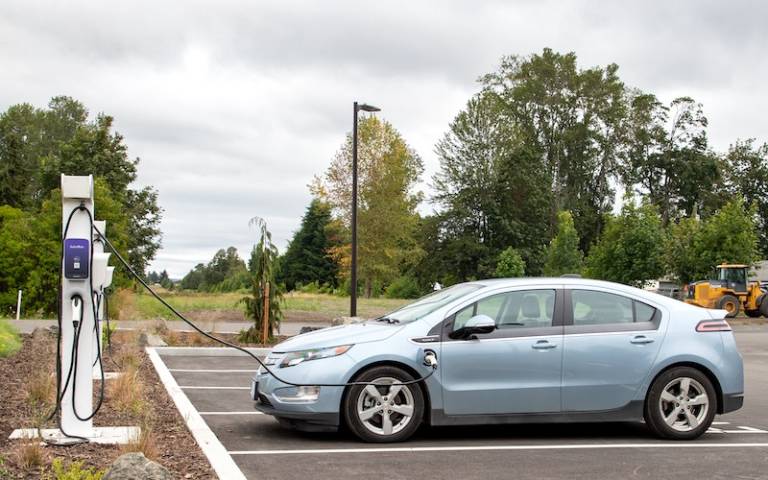Rishi Sunak’s watering down of net-zero policies will not help to create a better UK
22 September 2023
Gesche Huebner reacts to Rishi Sunak’s recent announcements on net-zero policies and looks at the equity implications

On Wednesday, Rishi Sunak presented his revision of the UK’s net zero policies as something “that eases the burdens on working people”, as a “fairer, better way” to reduce emissions – but really, this is “equality washing”.
As a general point, watering down the UK’s net-zero plans, which is effectively what Sunak has done, means more emissions and hence, more global warming. We know that climate change does not affect everyone equally, but rather increases inequalities and hits the most disadvantaged first and most. Of course, the UK delaying its emissions reduction is only a drop in the ocean but if many countries took the same approach, this could accelerate global warming and its distributional negative effects, in the UK and worldwide.
Sunak announced pushing back the ban on new car sales with combustion engines which results in the population being exposed to international oil prices for longer. Whilst overall inflation in the UK is easing, it has increased again from July to August for price of petrol and diesel and this trend might well continue. Delaying the mandate of electric vehicles will reduce the number available on the second-hand market where the majority of car sales happen, and where lower income households are most likely to buy a vehicle.
Delaying the introduction of heat pumps through aiming for only an 80% phase-out of gas boilers by 2035 and an 80% phase-out target of off-grid oil boilers by 2035 (as opposed to a ban on new installations by 2026), again locks us into fossil fuel use and consequentially international price volatility for longer. The huge increase in gas prices following Russia’s invasion of Ukraine largely triggered the cost of living crisis in the UK; relying more on home-generated renewable energy would provide a buffer against such price shocks.
The exposure to higher energy prices due to turmoil on international markets would particularly hit lower-income households that spend a larger share of income on energy.
Sunak scrapped the requirement for landlords to improve the energy efficiency of buildings. As a result, many renters will continue living in energy-inefficient homes that are hard and expensive to heat. In fact, people might be unable to afford heating them to healthy temperatures, and cold, damp homes have been linked to negative physical and mental health outcomes which in turn can contribute to a downward spiral of reduced economic activity, hence less income, making it even harder to afford better housing and worsening health further.
Sunak confirmed there would be no frequent flyer levy. Flying is highly unequally distributed in the UK, with about 50% of the population not taking any flights in any given year and 15% of the population responsible for 70% of all flights. Introducing a frequent flyer levy and using the revenue generated to subsidize public transport would have been a progressive measure to support those on lower incomes.
So, in summary, Rishi Sunak’s revision of net-zero policies under the guise of helping the British people will precisely do the opposite and nor will it help the planet.
Gesche Huebner is Lecturer at the Bartlett School of Environment, Energy and Resources and Co-Investigator in the new Energy Demand Research Centre, Equity Theme.
Image credit: pexels.com
 Close
Close

